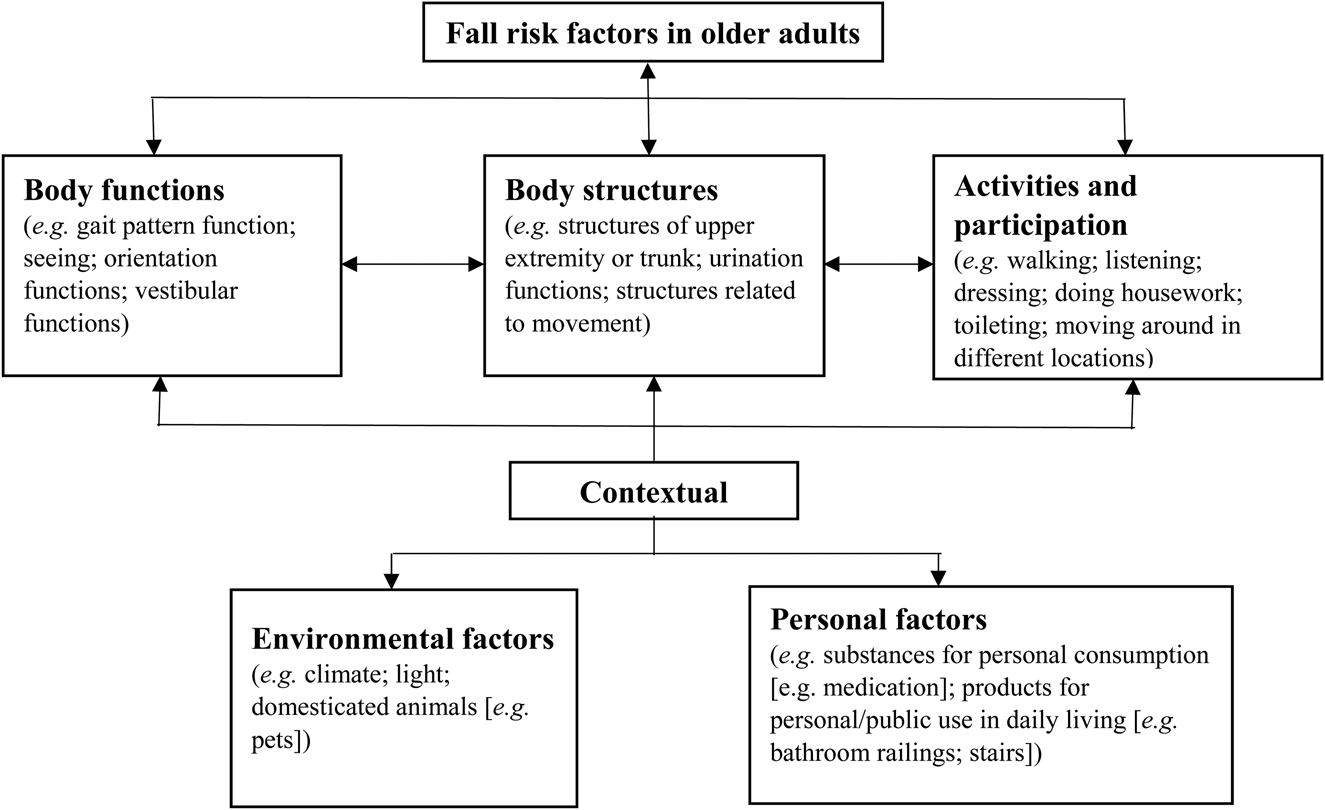The Facts About Dementia Fall Risk Uncovered
The Facts About Dementia Fall Risk Uncovered
Blog Article
The 20-Second Trick For Dementia Fall Risk
Table of ContentsUnknown Facts About Dementia Fall RiskSome Known Incorrect Statements About Dementia Fall Risk The Of Dementia Fall RiskDementia Fall Risk Can Be Fun For EveryoneLittle Known Questions About Dementia Fall Risk.
In the community, inadequate street lighting or vulnerable creeks and garbage dumps may likewise trigger mishaps. Autumns Risk Assessment Tool (FRAT) is a 4-item falls-risk screening device for sub-acute and residential treatment. The FRAT has 3 sections: drop threat standing, threat variable list, and action plan. A Fall Risk Standing consists of information regarding history of recent drops, drugs, mental and cognitive condition of the client.If the individual scores on a risk variable, the matching number of factors are counted to the individual's fall threat rating in the box to the far appropriate. If a patient's loss risk rating amounts to 5 or higher, the individual is at high risk for drops. If the client ratings only 4 points or reduced, they are still at some danger of dropping, and the nurse needs to use their ideal medical assessment to handle all loss danger variables as part of an all natural care strategy.
These common strategies, in general, help establish a risk-free atmosphere that minimizes unexpected drops and defines core preventative procedures for all individuals. Indicators are essential for people at threat for drops.
7 Easy Facts About Dementia Fall Risk Described
Wristbands need to include the person's last and very first name, date of birth, and NHS number in the UK. Only red color must be used to signal unique patient condition.
Items that are as well much may call for the client to connect or ambulate needlessly and can potentially be a threat or add to drops. Helps stop the patient from going out of bed with no aid. Nurses react to fallers' telephone call lights more quickly than they do to lights started by non-fallers.
Visual impairment can significantly trigger drops. Maintaining the beds closer to the flooring lowers the threat of drops and serious injury. Placing the mattress on the floor dramatically decreases autumn danger in some medical care setups.
More About Dementia Fall Risk
People that are tall and with weak leg muscular tissues that try to sit on the bed from a standing position are most likely to drop onto the bed since it's too reduced for them to reduce themselves safely. If a tall patient efforts to get up from a reduced bed without help, the client is likely to drop back down onto the bed or miss the bed and drop onto the floor.
They're designed to advertise timely rescue, not to stop drops from bed. Aside from bed alarm systems, enhanced guidance for high-risk individuals also may aid avoid drops.

Individuals with an evasion gait boost loss chances considerably. To reduce autumn danger, footwear should be with a little to no heel, thin soles with slip-resistant tread, and sustain the ankle joints.
The Basic Principles Of Dementia Fall Risk
In a research, homes with appropriate illumination record fewer drops (Ramulu et al., 2021). Renovation in illumination at home may minimize autumn rates in older grownups.

Caretakers work for guaranteeing a protected, protected, and secure environment. Researches demonstrated really low-certainty evidence that next page caretakers reduce autumn threat in severe treatment medical facilities and just moderate-certainty that alternatives like video surveillance can decrease caretaker usage without enhancing loss risk, recommending that caretakers are not as helpful as at first thought (Greely et al., 2020).
The Main Principles Of Dementia Fall Risk

Increased physical conditioning minimizes the threat for drops and limits injury that is suffered when autumn takes place. Land and water-based workout programs might be in a similar way advantageous on balance and stride and consequently lower the risk for falls. Water exercise may contribute a positive benefit on balance and gait for ladies 65 years and older.
Chair Increase Exercise is a basic sit-to-stand workout that aids reinforce the muscular tissues in the upper legs and butts and boosts flexibility and independence. The goal is to do Chair Rise workouts without making use of hands as the customer comes to be more powerful. See sources area for an in-depth guideline on just how to do Chair Increase exercise.
Report this page